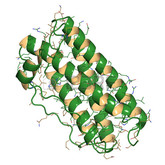Biosimilars/Research
European regulatory framework for approval of biosimilars – perspectives and future developments
Regulatory agencies around the world have reviewed and approved marketing authorization applications for biosimilars via specific marketing authorization procedures that vary between jurisdictions. In Europe, the European Medicines Agency (EMA) has already more than 10 years of experience with review of applications and approval of biosimilars for use in the European Union.
Safety surveillance of bevacizumab biosimilar (Bevax) in Argentina
Benefit-risk evaluations are mandatory throughout the life cycle of a therapeutic agent, to guarantee efficacy for the authorized indications without an unacceptable incidence of adverse effects. This monitoring can be carried out using pharmacovigilance (PhV) procedures, which are vital in the identification and prevention of adverse drug reactions (ADRs). Due to the inherent variability of bioproduction, this is of paramount importance for biological products, including biosimilars.
Positive results for adalimumab and etanercept biosimilars from Sandoz
On 23 October 2018, Sandoz, the generics division of Novartis, presented positive phase III data for its adalimumab and etanercept biosimilars [1, 2].
Positive phase I results for Fresenius Kabi’s pegfilgrastim biosimilar
Fresenius Kabi, one of the independently operated business segments of global healthcare group Fresenius, announced on 9 October 2018 that results from two phase I studies of its pegfilgrastim biosimilar (MSB11455) had met their primary endpoints.
Positive results for Chinese rituximab and trastuzumab copy biologicals
Researchers from Shanghai Henlius Biotech have presented positive phase III study results for their rituximab [1] and trastuzumab [2] copy biologicals.
Bioequivalence of bevacizumab biosimilar (BEVZ92) versus Avastin in mCRC patients
Researchers from mAbxience presented data that supports the pharmacokinetic (PK) bioequivalence between bevacizumab biosimilar BEVZ92 and originator bevacizumab (Avastin) as first-line treatment in combination with fluorouracil, leucovorin and oxaliplatin (FOLFOX) or fluorouracil, leucovorin, and irinotecan (FOLFIRI). in patients with metastatic colorectal cancer (mCRC) [1].
Switching from reference products to biosimilars: the European perspective
The number of biosimilars receiving marketing authorization has grown steadily over the past several years [1, 2] and is expected to continue growing in the future. Particularly when biologicals are prescribed for the treatment of chronic diseases, switching patients from the originator biological to the biosimilar is increasingly becoming an option, allowing for a considerable reduction of public health expenditure. This article [3] provides an overview of current approaches in Europe to switching patients to treatment with biosimilars.
Comparative results for CT-P10 in low-tumour burden FL
According to research in patients with low-tumour burden follicular lymphoma (FL), the efficacy and pharmacokinetics of rituximab biosimilar CT‑P10 are equivalent or non-inferior to the originator rituximab, Roche’s MabThera/Rituxan [1].
Safety of originator and biosimilar epoetin alfa drugs
Researchers from Italy carried out a study to compare the safety profile of biosimilars with respect to the reference product in a nephrology setting. The results confirm the comparable safety profiles of originator and biosimilar epoetin alfa drugs when used in patients receiving dialysis [1].
Positive phase III data for adalimumab biosimilar Cyltezo
Germany-based Boehringer Ingelheim Pharmaceuticals (Boehringer Ingelheim) announced on 12 September 2018 positive phase III data for its adalimumab biosimilar, Cyltezo [1]. The results, according to Boehringer Ingelheim ‘confirm that Cyltezo is equivalent to Humira, with no clinically meaningful differences in efficacy safety and immunogenicity in people with moderate-to-severe chronic plaque psoriasis’.












